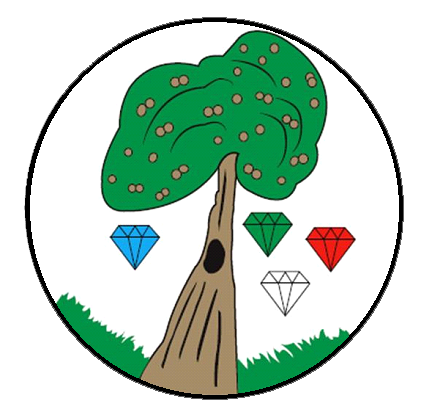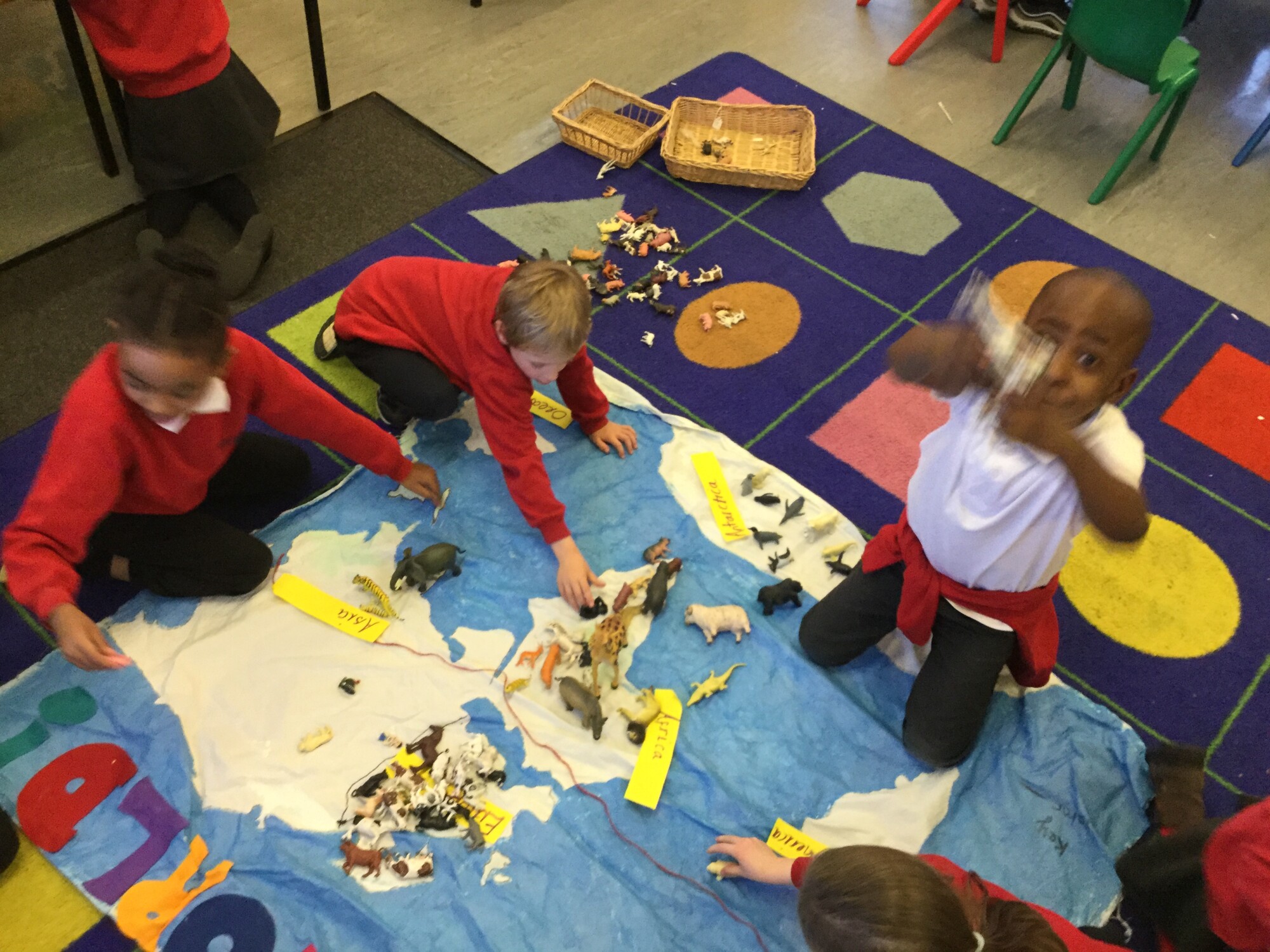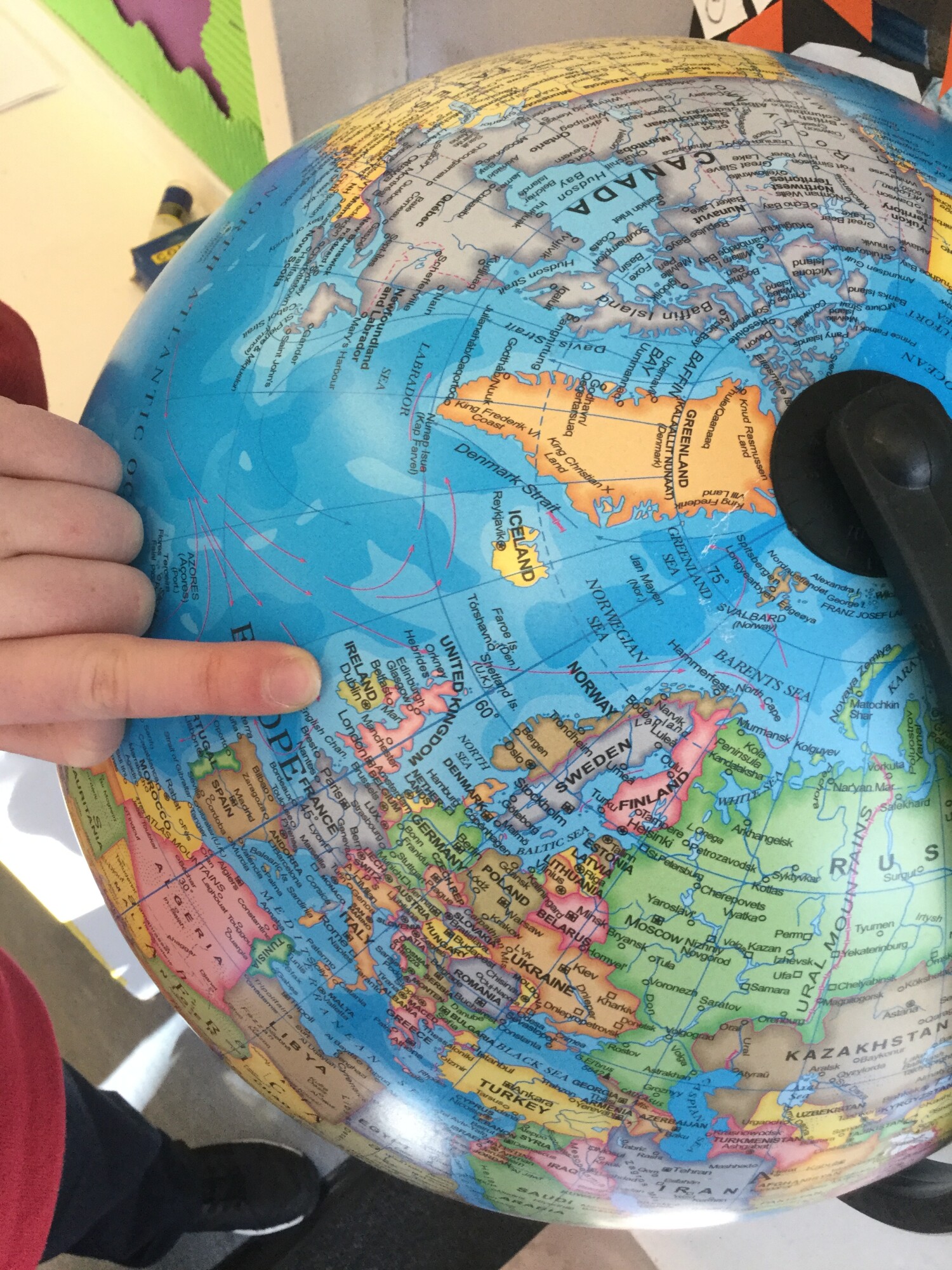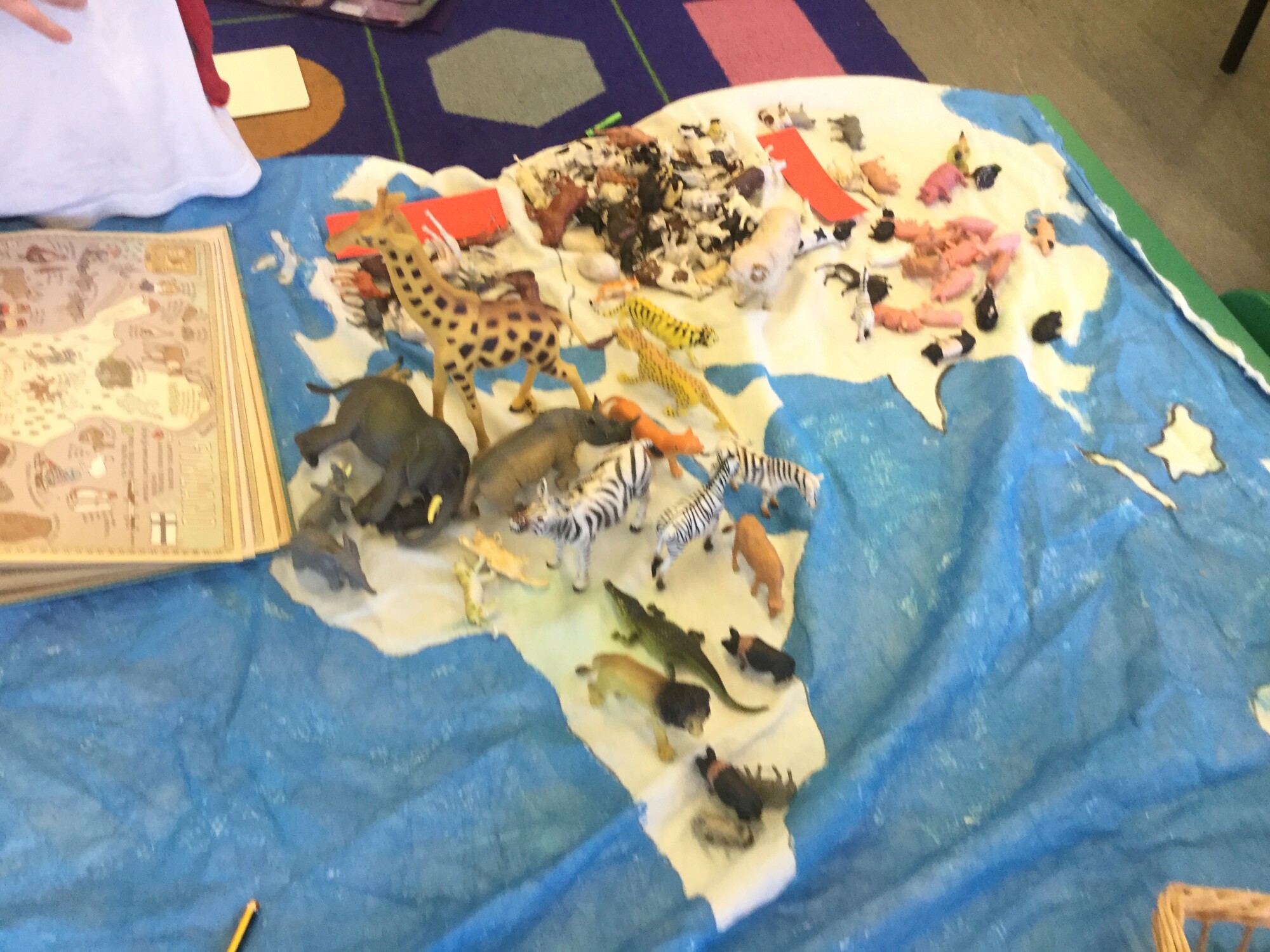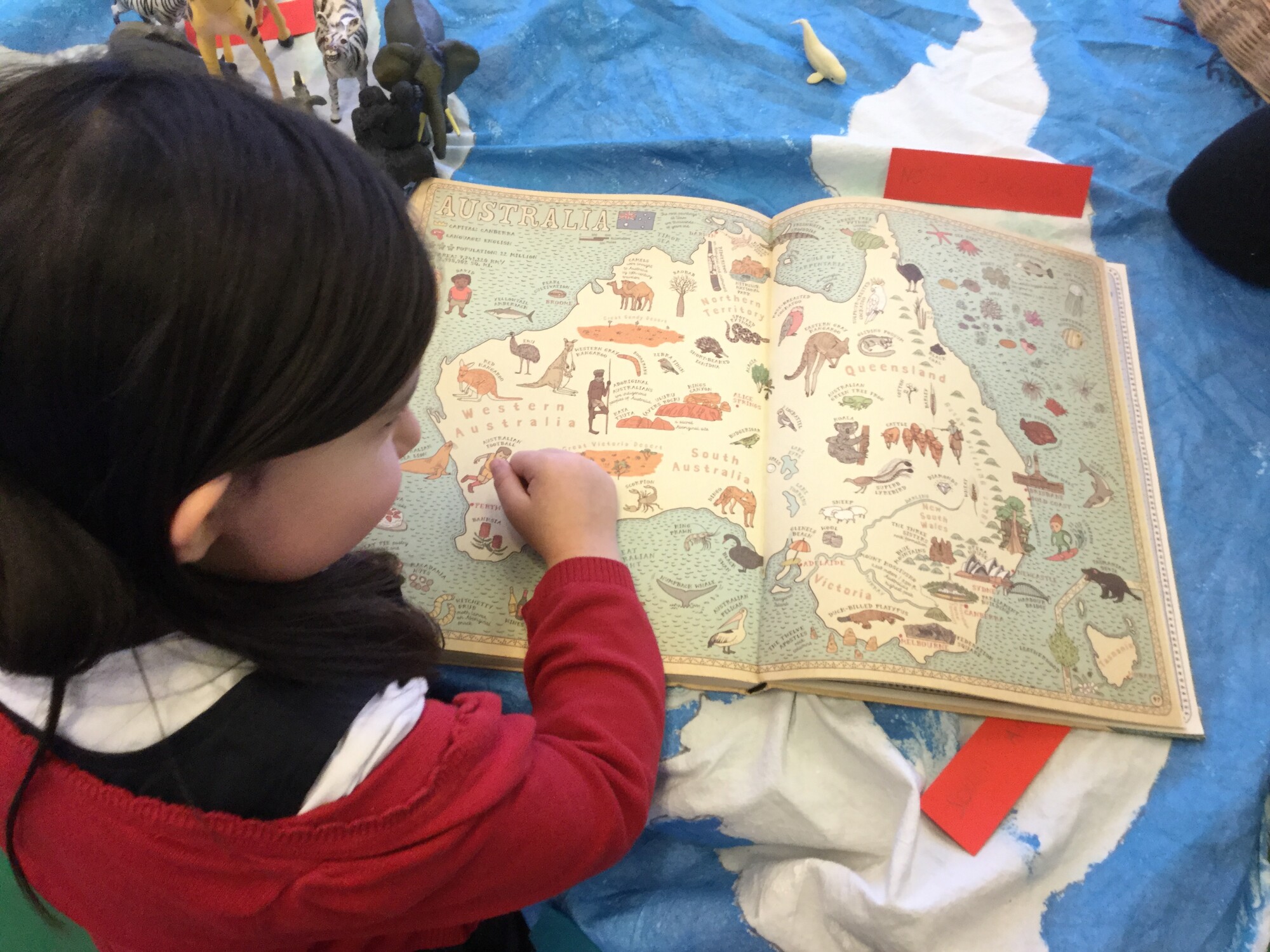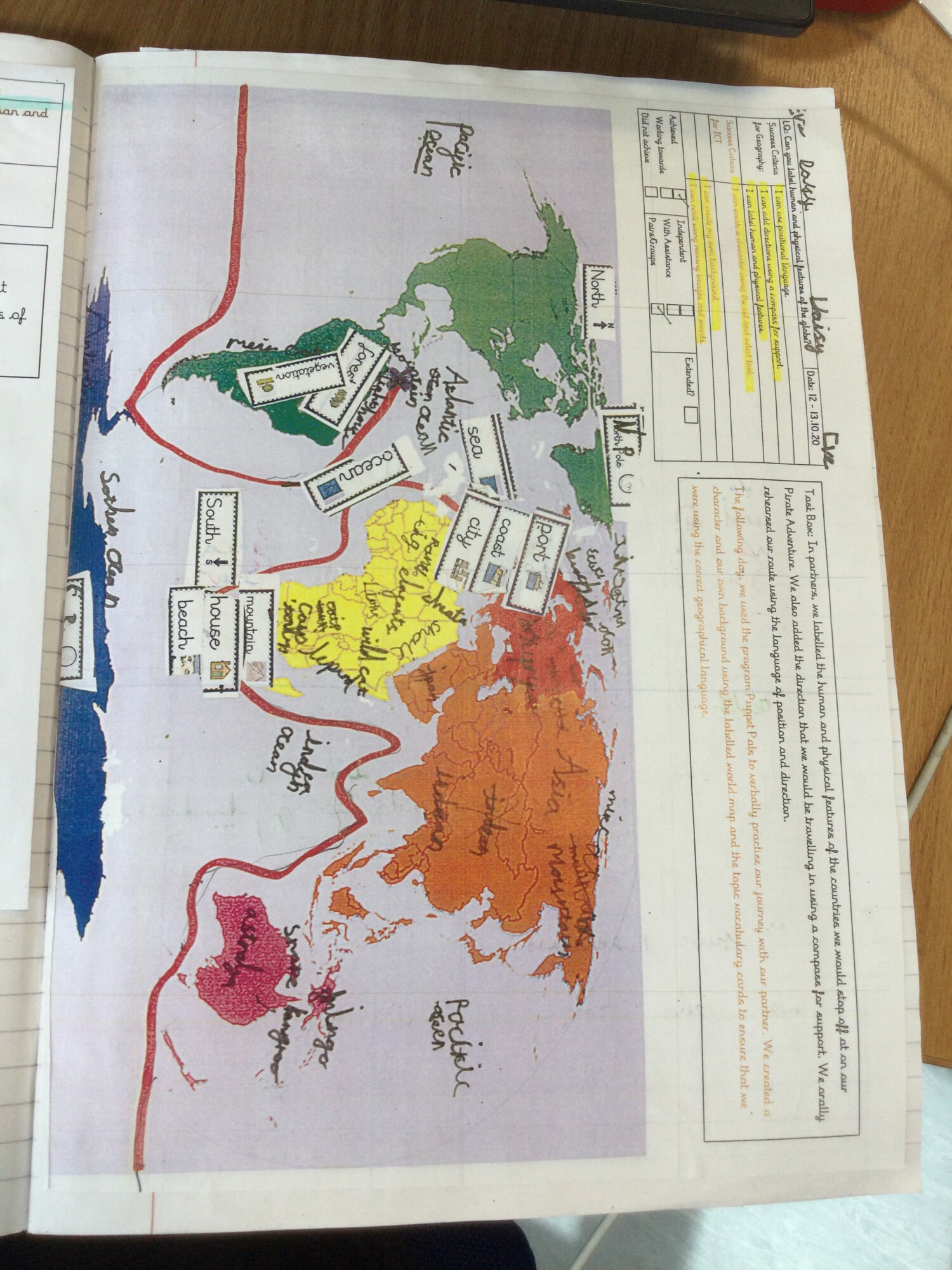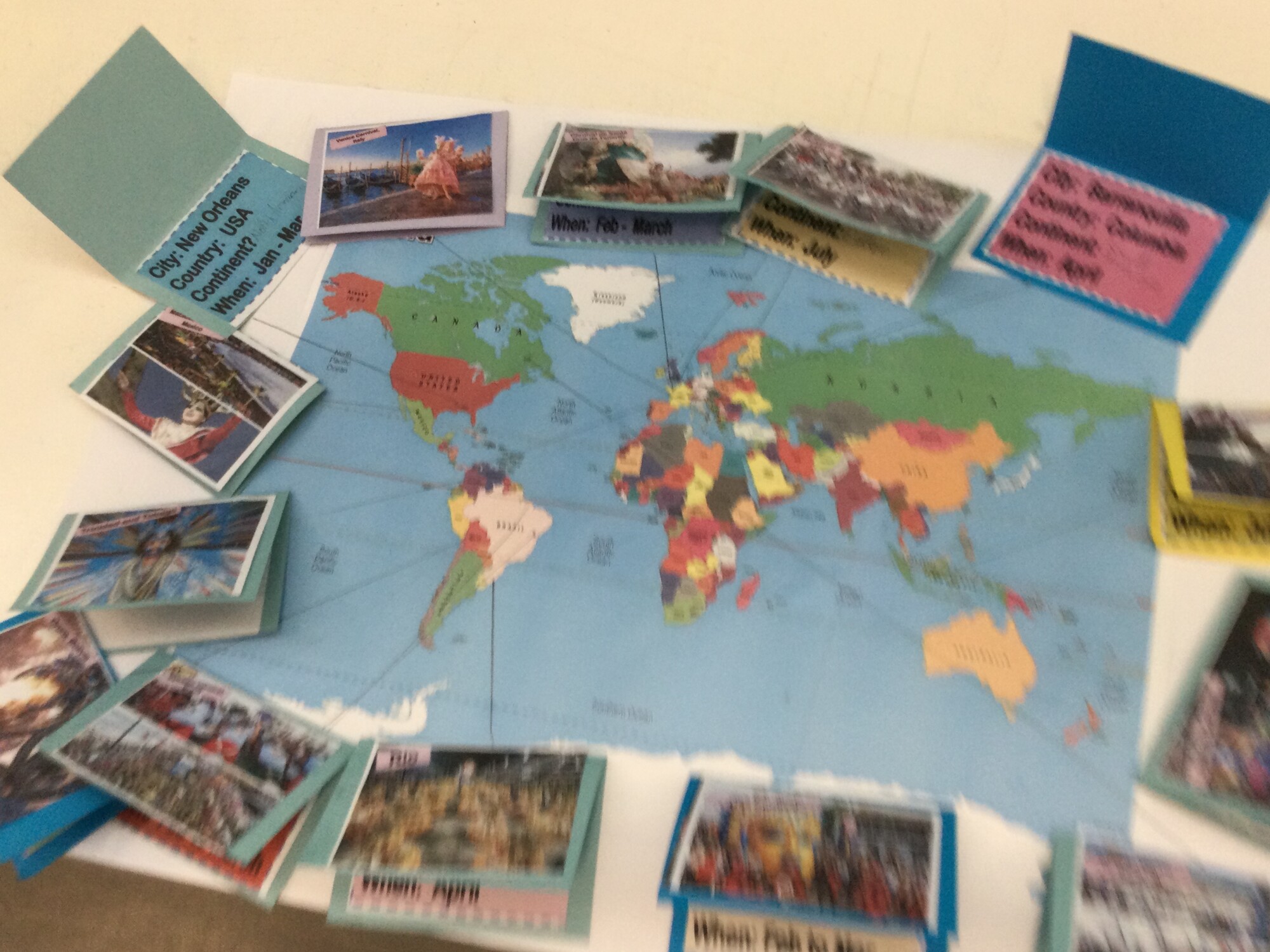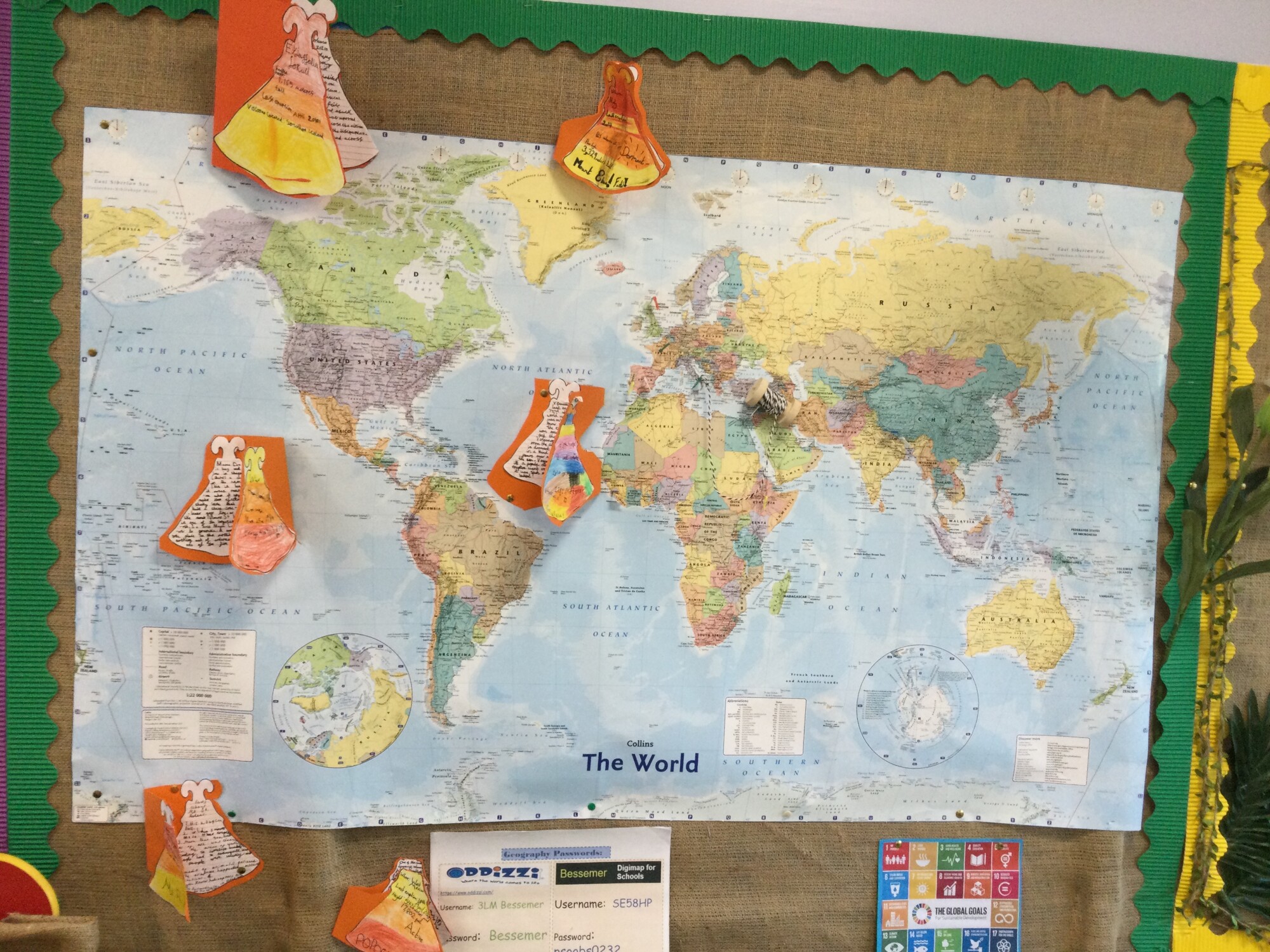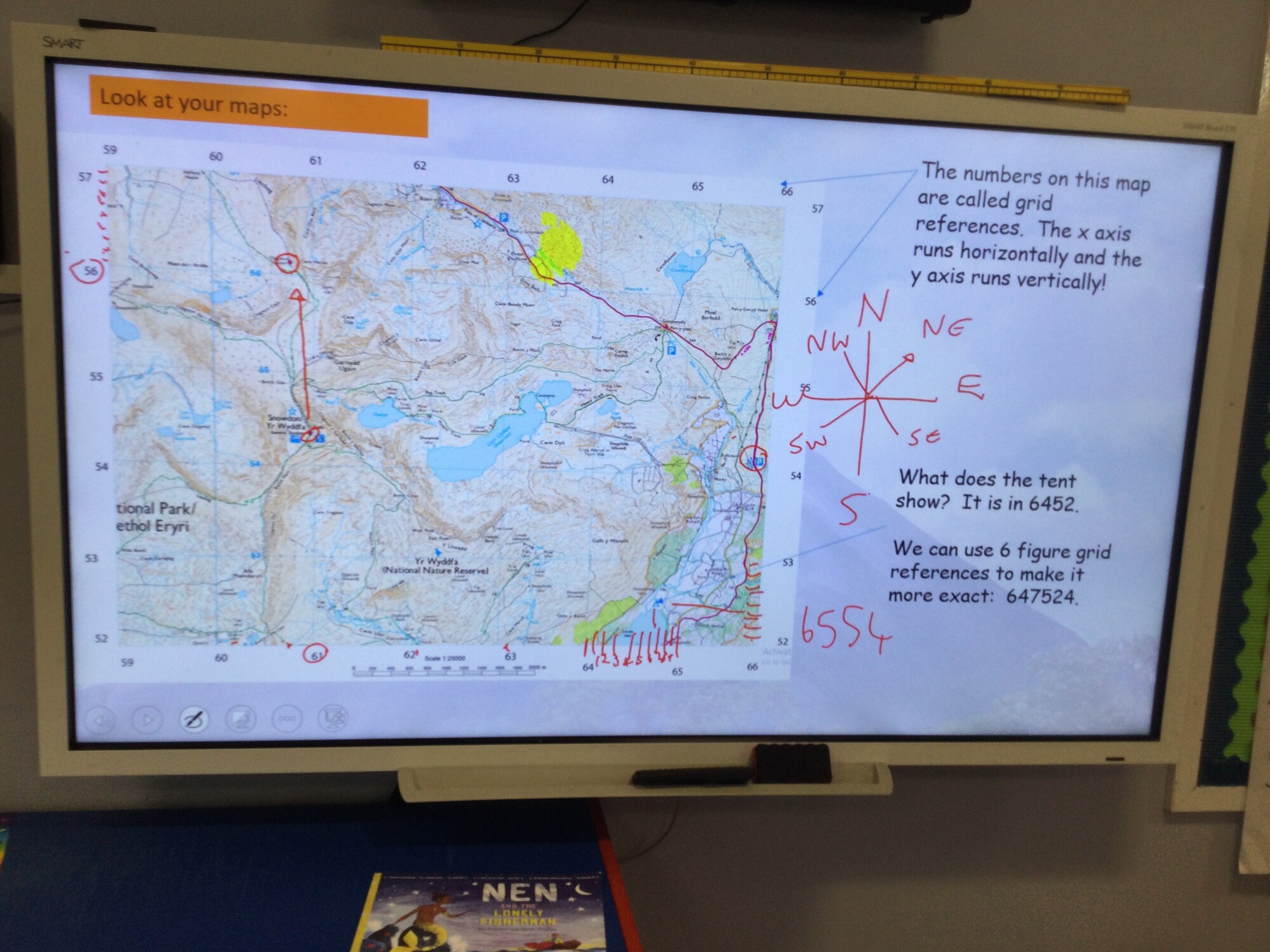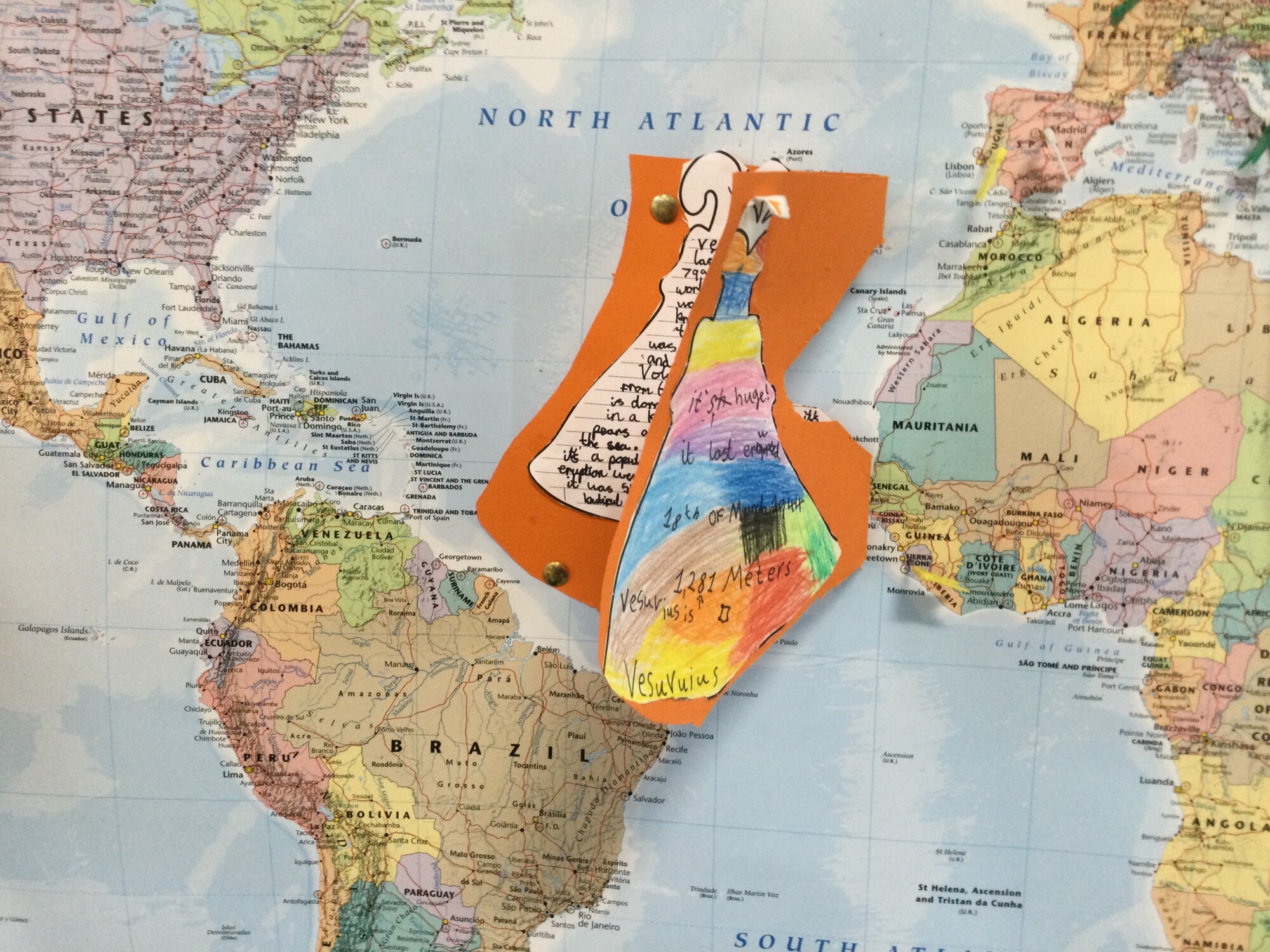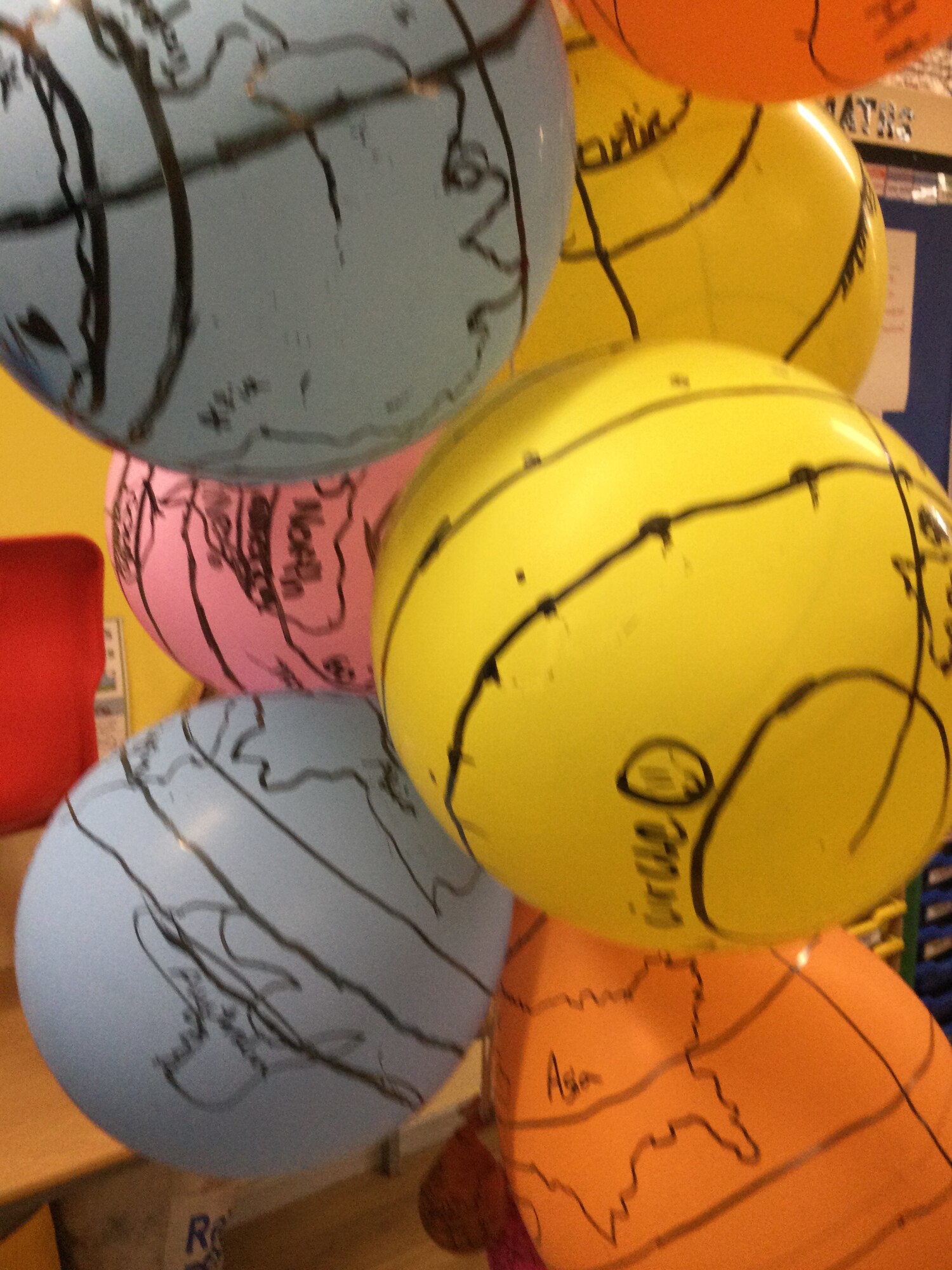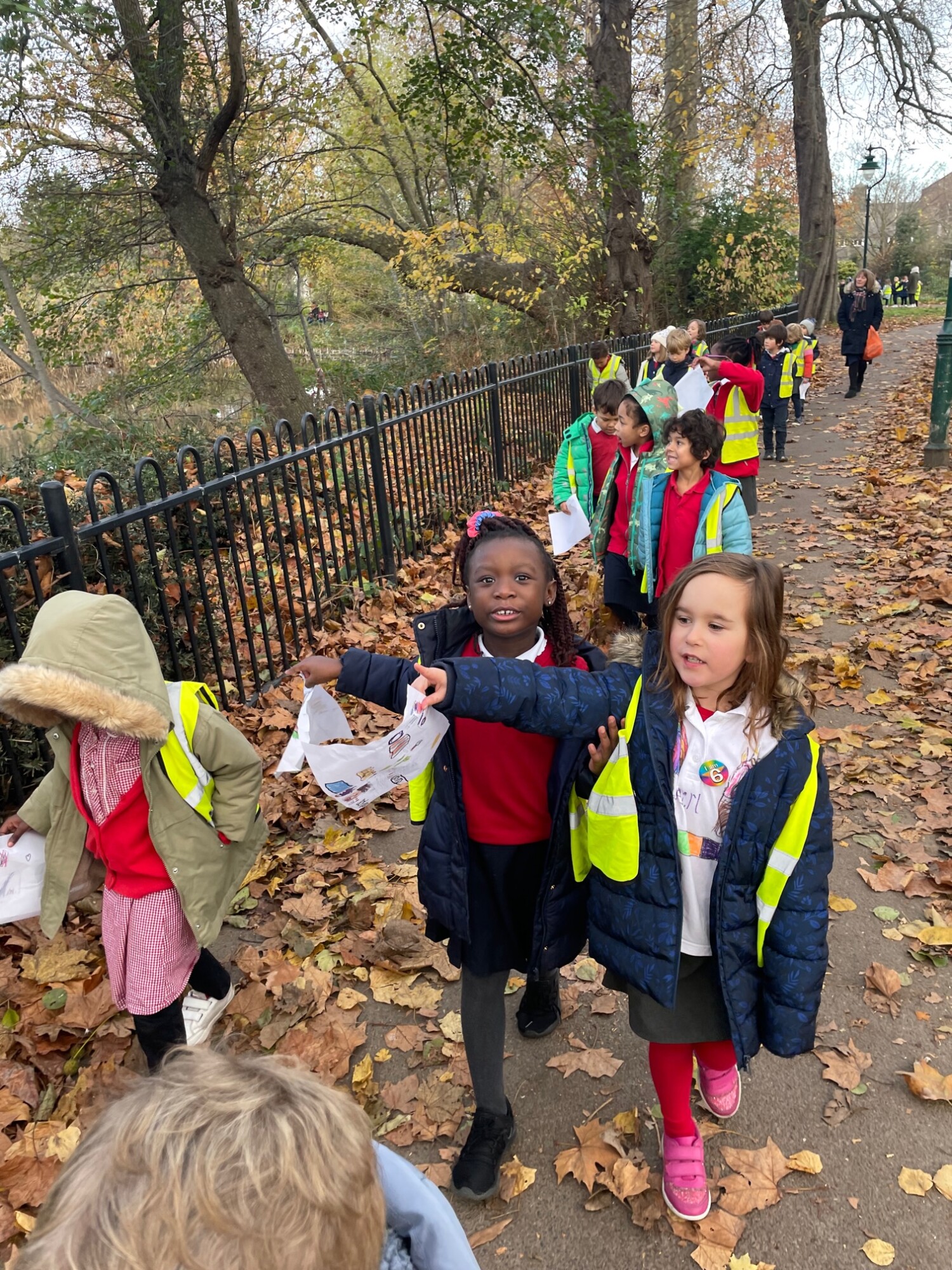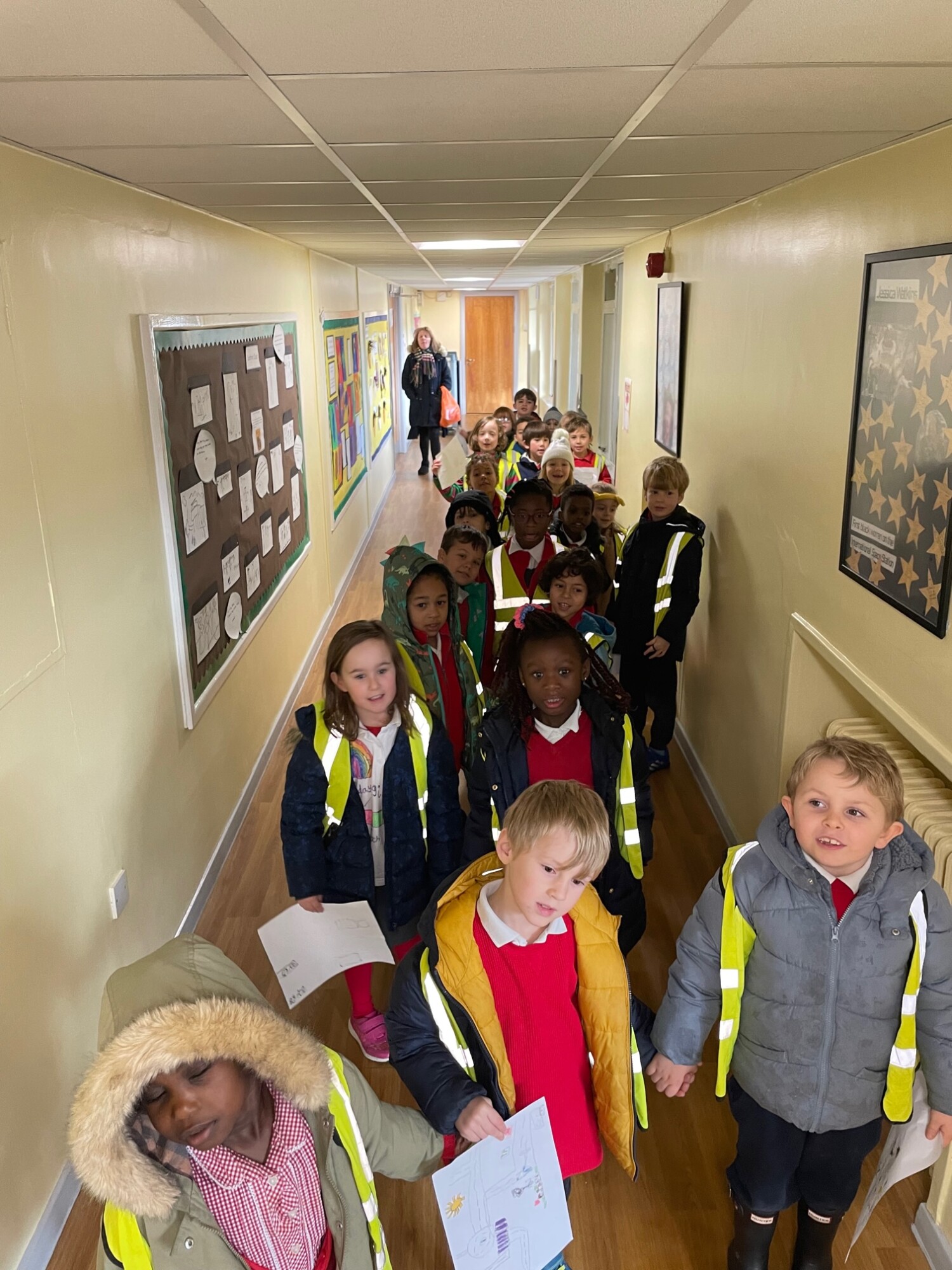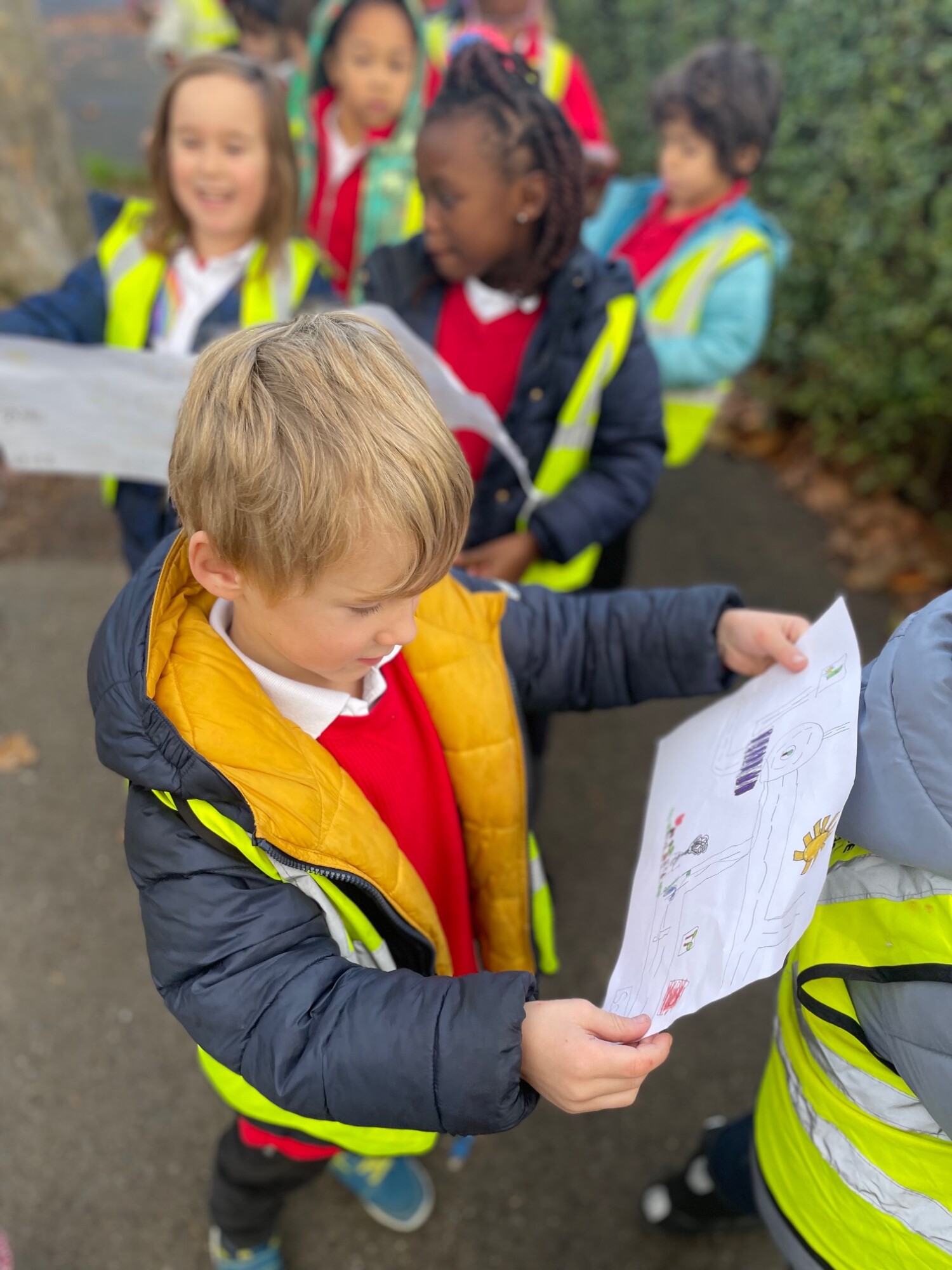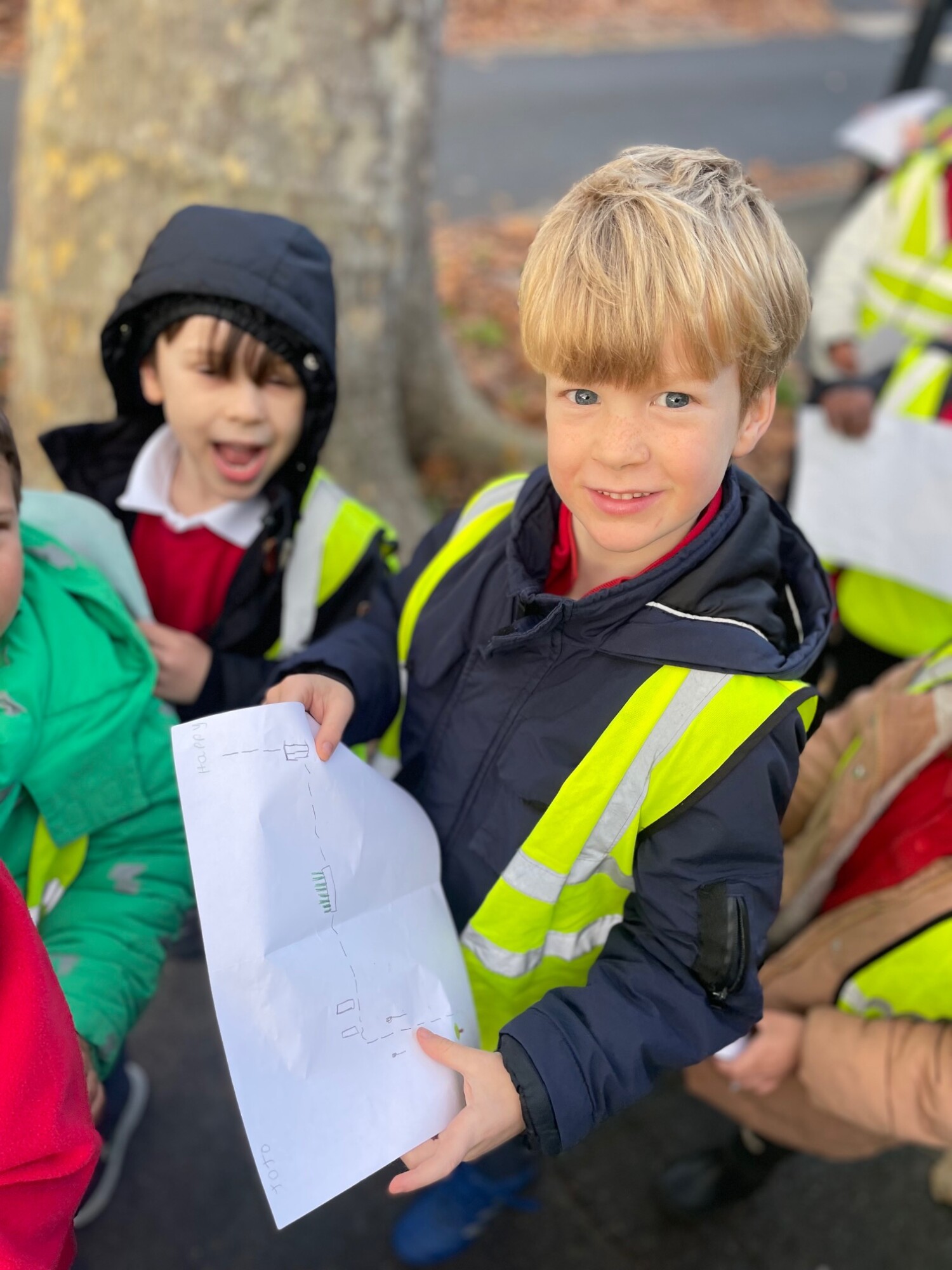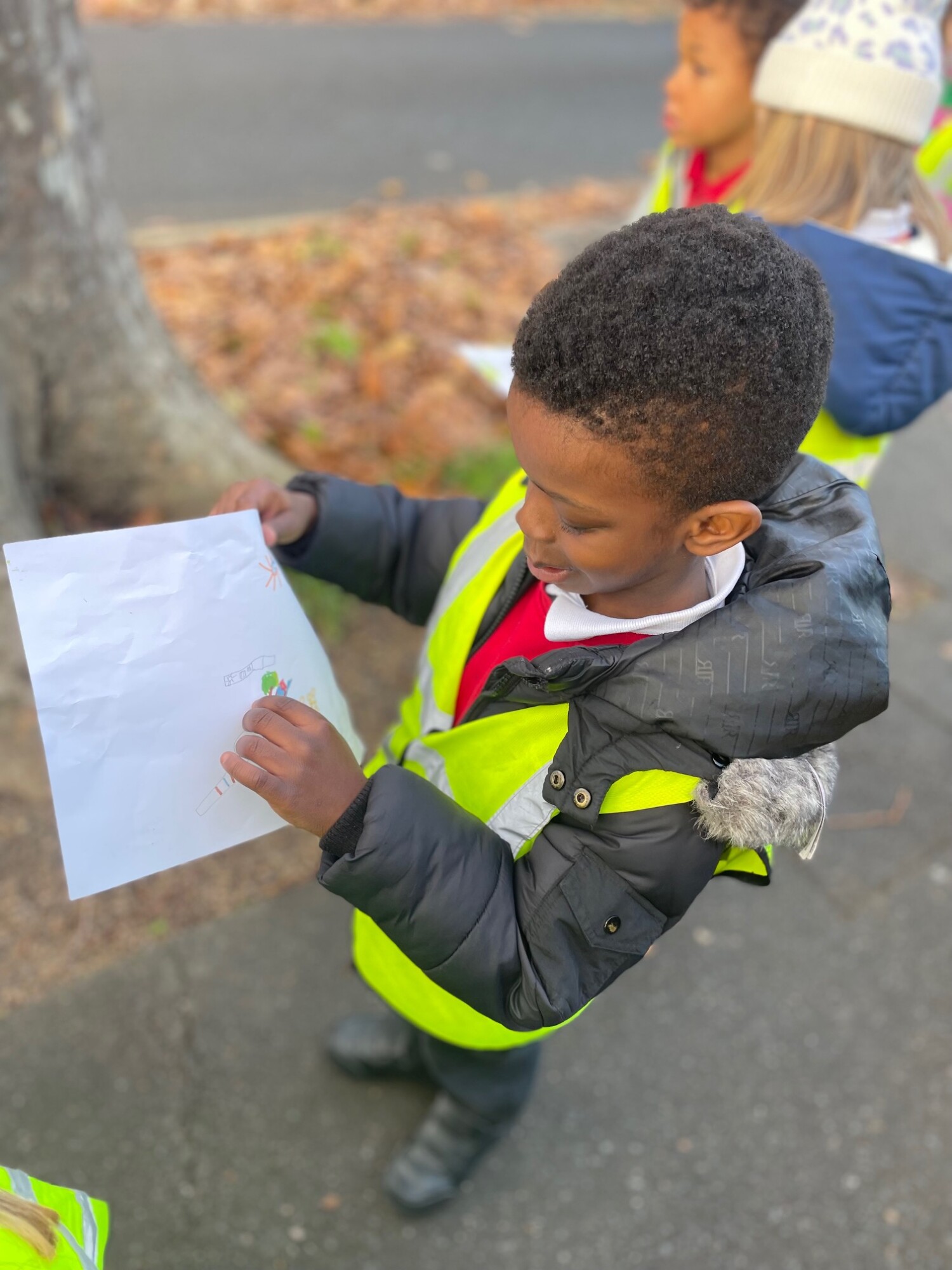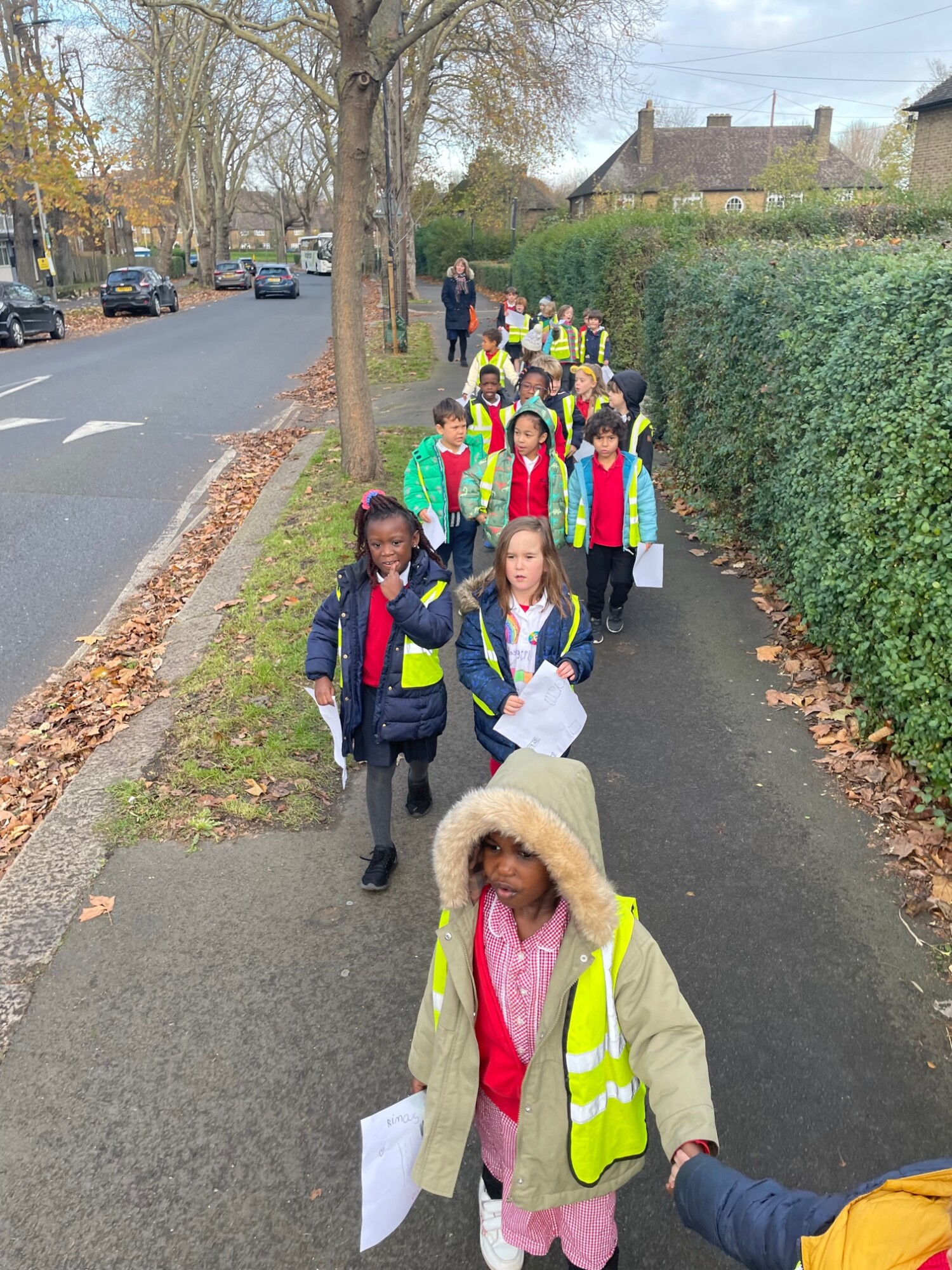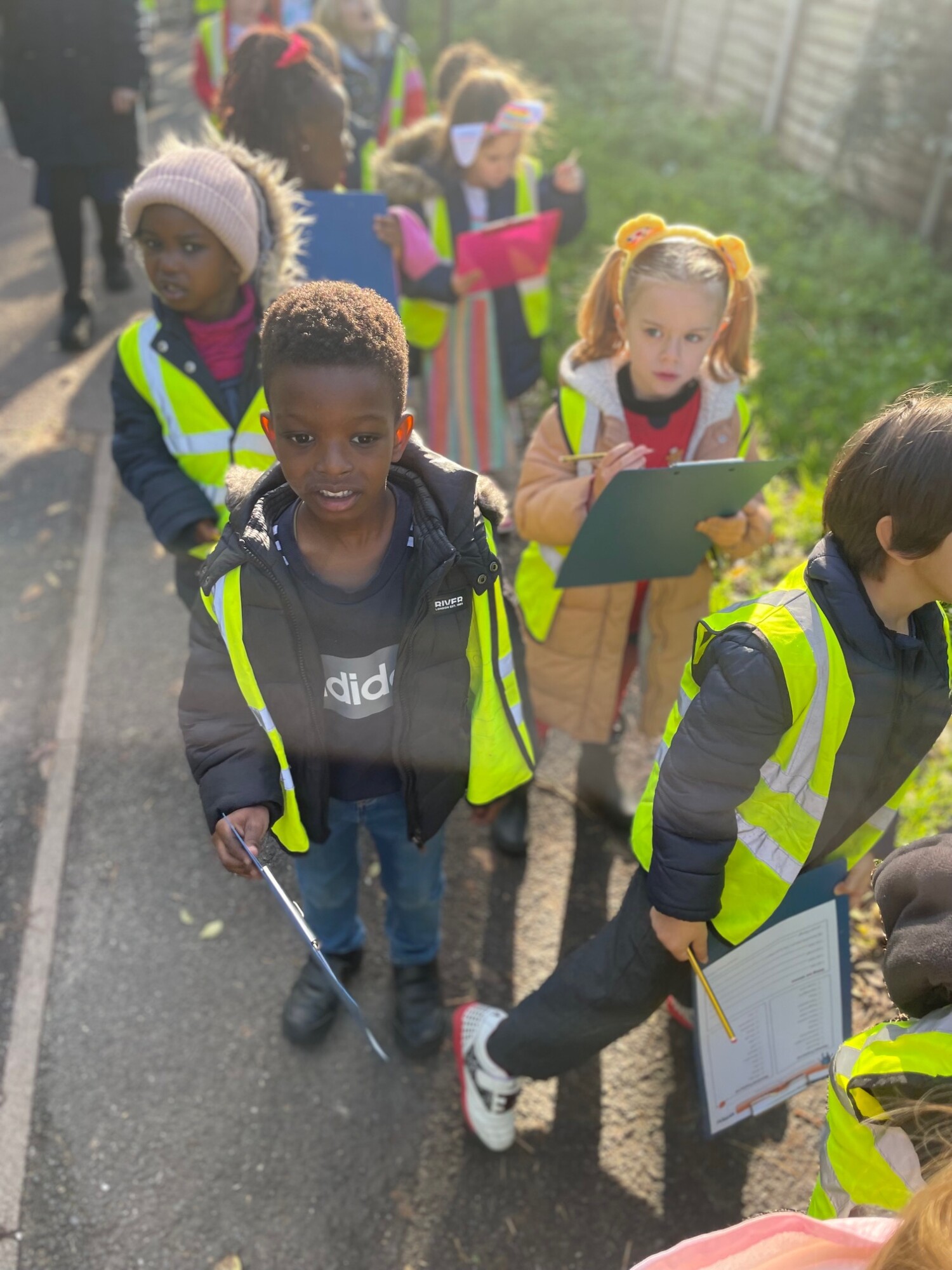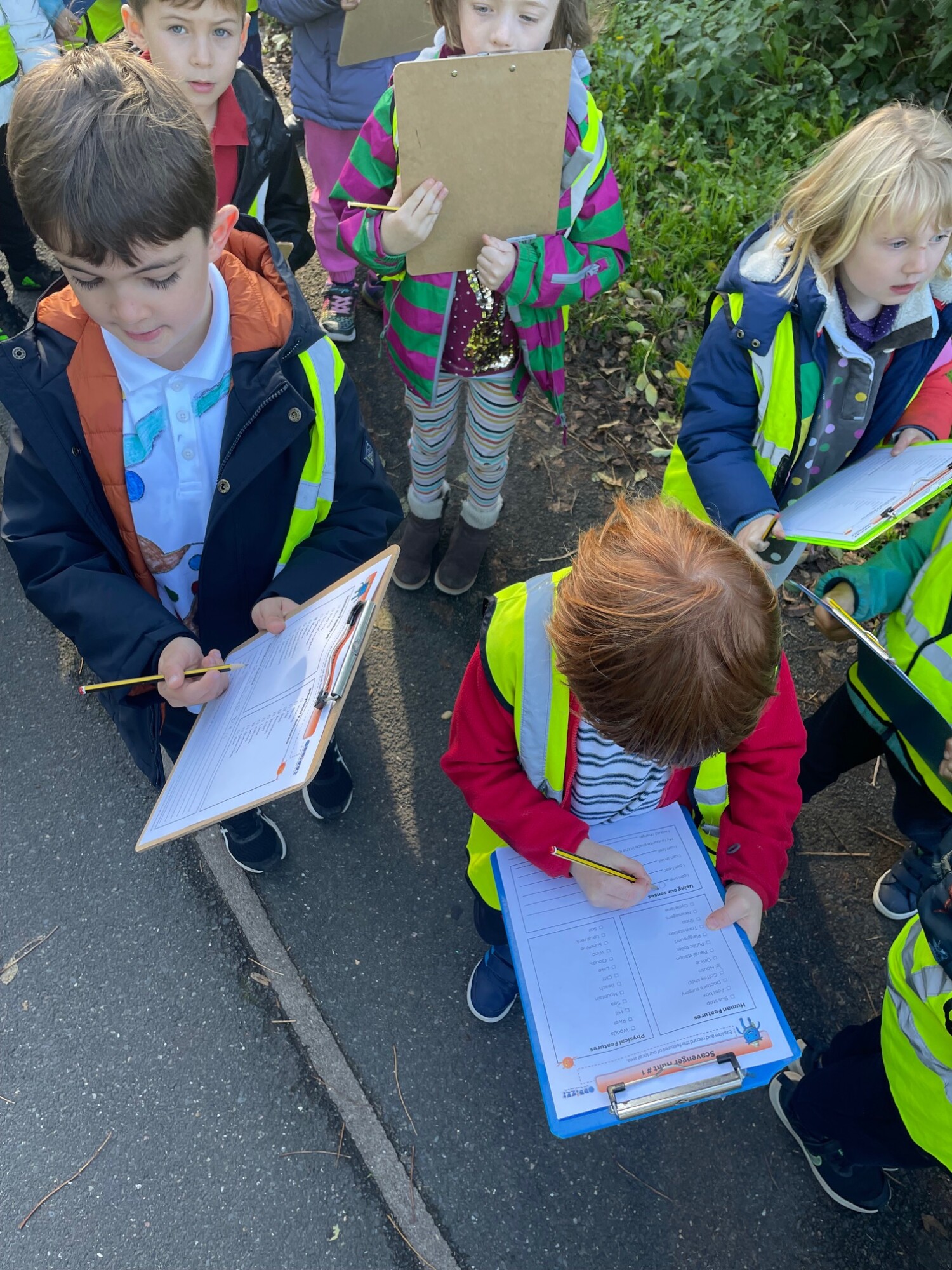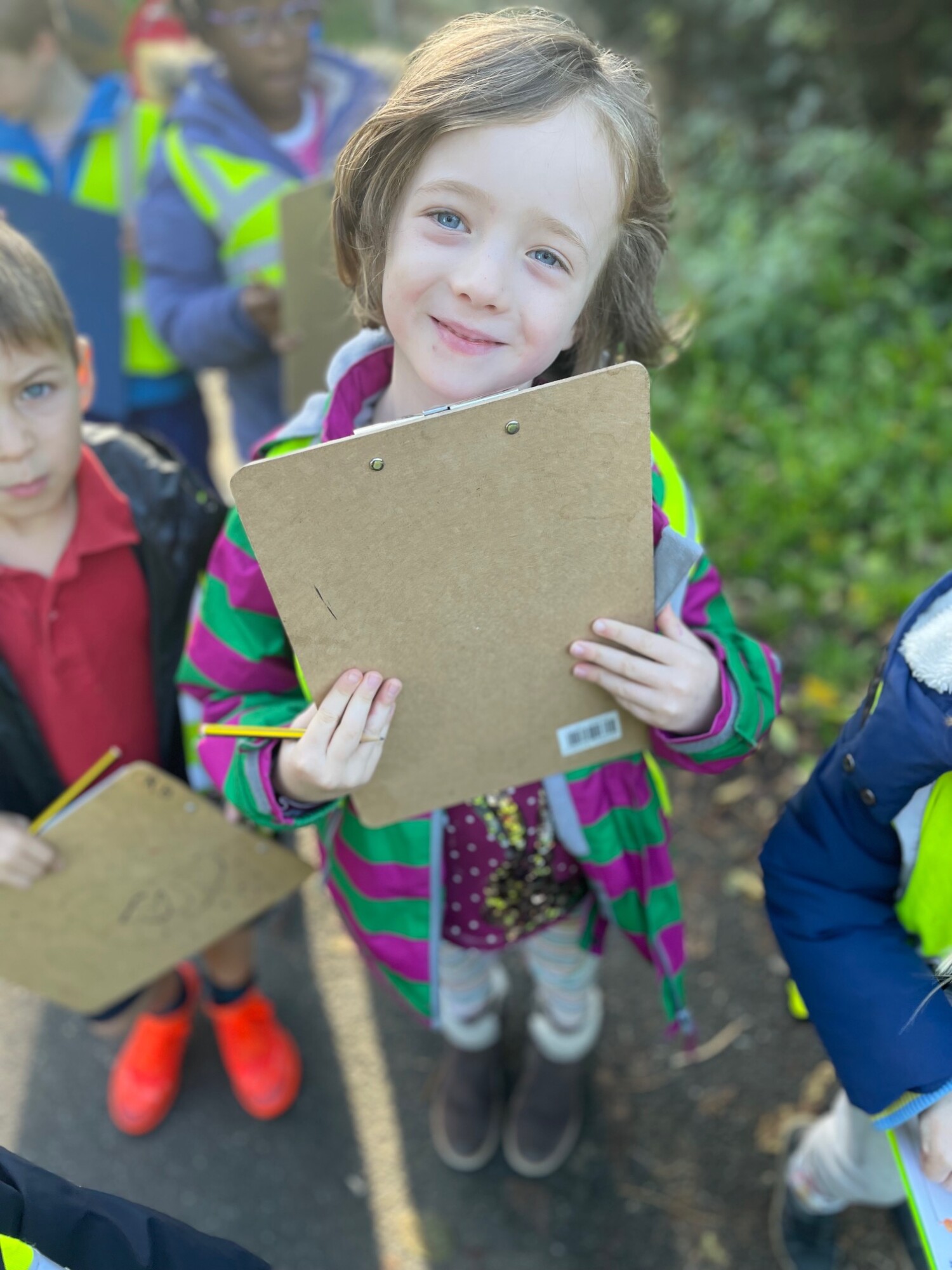Learning Hub
Geography
Geography at Bessemer inspires the children to see themselves as geographers. The curriculum enables them to fully understand the interaction between human and physical geographical processes. Children access a range of thematic and regional studies, placing their identity and locality at the heart of learning, establishing connections on a local to global scale. Through practical and creative activities, children are taught to apply their skills and knowledge to understand why the world is the way it is today, and what it will be like in the future. Knowledge and skills are taught in a way that enables the children to enquire, carry out fieldwork and develop expert map skills. Geography is present across the curriculum, providing a rich web of knowledge and skills to help connect learning.
Becoming Geographers at Bessemer...
Intent
At Bessemer, we aim to inspire in our children to have fascination for the rich and diverse world around them, its people, their lives and cultures; to become confident global citizens who have a secure understanding and appreciation for their community, their country, the world in which they live and their place within it.
Through Geography, our children will build an increasingly broad knowledge of places, landscapes and environments across the globe, gain a deep understanding of the Earth’s physical and human processes and how they interact. They will reflect on and understand how these processes determine the Earth’s features, both physical and human, and how these evolve over time. They will consider what these changes mean for the future and how we all play a part in informing it. We study physical and human geography alongside an emphasis on geographical enquiry. Our curriculum aims to give children a love of their part of the world that they see each day when they step out of home, a curiosity for finding out why their world is the way it is and provides children with an understanding of some of the ways we can protect it.
Implementation
In order to achieve our aims, we have designed a curriculum, informed by the 2014 Primary National Curriculum to ensure coverage, that will engage our children, give purpose and equip them with the knowledge and skills needed to be informed and effective members of society.
Lessons are planned for alongside our progression of knowledge and skills document to ensure our children are taught progressively, building their knowledge and skills in geographical enquiry as they move up the school. Geography units are sequenced so that each lesson builds upon the last.
Our children study geography in half-termly blocks. Lessons are approached creatively, ensuring they are experiential, purposeful and immersive. This not only ensures the children’s engagement, but delivers lessons that resonate and can be accessed by all. Each lesson is an opportunity to utilise and build upon developing skills. A variety of resources are used to support investigations in different contexts, to observe, measure, gather information, analyse, compare and contrast and share their findings.
The Early Years Foundation Stage (EYFS) follows the ‘Development Matters in the EYFS’ guidance, which states that all children in reception should have an ‘Understanding of the World; people and communities, the world and technology’ by the end of the academic year. Topics are chosen and units planned in accordance with this along with our children’s progression of learning as they move up the school.
Great importance is also placed into learning outside of the classroom. Whether within the school grounds, the local community or further afield, opportunities to investigate, gather information and foster skills in observation and fieldwork are an extremely important part of the children’s geography learning. Throughout these units, children experience managing risks, navigating real landscapes and gathering data for real purposes. Additional learning opportunities are also planned for through school trips and visits, providing greater enrichment in a variety of contexts. An extra-curricular geography club; ‘Explorers’ runs in the summer term giving the opportunity for children to develop their passion for geography further.
Impact
Throughout the geographical curriculum, learning is revisited frequently. Opportunities for frequent oral and written recall of learned knowledge happen throughout each unit in order to help with understanding and retention of learning. Throughout the unit, practical and creative learning leads to an enquiry-based outcome (essays, reports, spoken accounts) and this assesses children’s understanding and progress of knowledge and concepts covered.
Geography enables children to make sense of their world around them. When the topic focus is geography, children develop awareness of where they live and how it is similar and different to various geographical places in the world beyond, its physical and human geography, culture, traditions and what it’s like to live there. Our many trips and school journeys incorporate geographical skills such as map work, looking at aerial photos and making comparative studies.
How could you help with your child’s learning at home?
A five minute conversation a couple of times a week can open up a whole new world of thinking and enjoyment of geography. It isn’t all about maps! Maybe you could try out one of the suggestions below.
o Learn a new country and capital city every week (http://gegraphy.about.com/od/countryinformation/a/capitals.htm)
o Have a 5 minute chat abut geography in the news, e.g. the location and effect of an earthquake, volcano or hurricane, or a local planning issue.
o Identify different types of homes as you walk home from school, e.g. flats, terraced houses, semi-detached homes.
o Look for different types of land use while you walk home, e.g. transport (roads, trains, aeroplanes, canals and rivers), homes, businesses, parks and recreational areas, derelict land.
o Ask your child a “What if…?” question, linking it to the effect on people, places and the environment – e.g. What if we didn’t have any electricity? What if we no longer had mobile phones? What if water stopped flowing from our taps? What if all of the bees in the world died?
You could introduce your child to some of the geographical websites and online resources available that bring the world of Geography to their fingertips. Here are a few suggestions.
§ Geography games and homework help are available from Ordnance Survey.
http://mapzone.ordnancesurvey.co.uk/mapzone/
§ National Geographic Kids has a website packed full of fascinating facts, games and quizzes.
http://kids.nationalgeographic.com/
§ Maps at your fingertips!
http://www.worldatlas.com/
§ Guess where you are in the world using this amazing Geoguessr game!
http://geoguessr.com/ This game is Popular at Bessemer!
